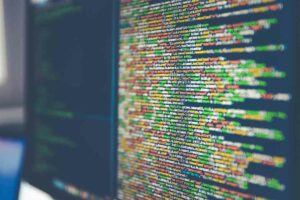PHL digitalization efforts aim to address health, education gaps

THE GOVERNMENT is looking to adopt artificial intelligence (AI) and blockchain technologies to advance digitalization in key areas like healthcare and education, the Department of Information and Communications Technology (DICT) told the UN Economic and Social Commission for Asia and the Pacific (ESCAP).
“We will harness the power of data analytics to inform evidence-based policy making and drive greater efficiency and effectiveness in government services,” DICT Secretary Ivan John E. Uy said during the ESCAP’s 80th ses-sion in Bangkok, Thailand on Monday.
The Philippines is working to keep up with global digitalization efforts to boost healthcare access and address climate-related risks and an ongoing learning crisis.
“We will leverage emerging technologies such as artificial intelligence, blockchain… to address some of the most pressing challenges, from healthcare, education, to climate change and disaster resilience,” Mr. Uy said.
He said the Philippines is also looking to invest in digital skills development to upskill Filipino workers in the digital economy, a sector that is projected to reach up to $150 billion in gross merchandise value by 2030.
The value of digital transactions in the Asia-Pacific region are expected to reach $6.7 trillion by 2026, according to ESCAP.
“We will foster an environment that encourages innovation and entrepreneurship, providing support and resources to startups and small businesses as they harness the power of technology to drive economic growth and create jobs,” Mr. Uy said.
Oleg Shamanov, deputy permanent representative of the Russian Federation to ESCAP, said countries must also consider the risks associated with AI tools.
“AI can be useful, but why don’t we raise the issue of the risks that come with its utilization in an irresponsible fashion?,” he said.
“In the digital era, using new tools, platforms, methods for lifelong and continuous learning has got much more important,” Davood Manzoor, vice-president and the head of Planning and Budget Organization in Iran, told the forum.
Digital innovations should also be in line with countries’ commitment to reduce global emissions to net zero by 2050 under the Paris Agreement, said George Lam, chairman of the ESCAP Sustainable Business Network.
“We urge governments to create clear and predictable policy frameworks that foster and accelerate green innovation and transformation to a net zero carbon emission,” he said. — B.M.D. Cruz




